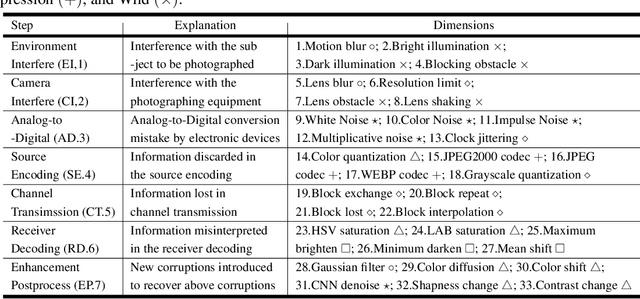R-Bench: Are your Large Multimodal Model Robust to Real-world Corruptions?
Paper and Code
Oct 07, 2024



The outstanding performance of Large Multimodal Models (LMMs) has made them widely applied in vision-related tasks. However, various corruptions in the real world mean that images will not be as ideal as in simulations, presenting significant challenges for the practical application of LMMs. To address this issue, we introduce R-Bench, a benchmark focused on the **Real-world Robustness of LMMs**. Specifically, we: (a) model the complete link from user capture to LMMs reception, comprising 33 corruption dimensions, including 7 steps according to the corruption sequence, and 7 groups based on low-level attributes; (b) collect reference/distorted image dataset before/after corruption, including 2,970 question-answer pairs with human labeling; (c) propose comprehensive evaluation for absolute/relative robustness and benchmark 20 mainstream LMMs. Results show that while LMMs can correctly handle the original reference images, their performance is not stable when faced with distorted images, and there is a significant gap in robustness compared to the human visual system. We hope that R-Bench will inspire improving the robustness of LMMs, **extending them from experimental simulations to the real-world application**. Check https://q-future.github.io/R-Bench for details.
 Add to Chrome
Add to Chrome Add to Firefox
Add to Firefox Add to Edge
Add to Edge